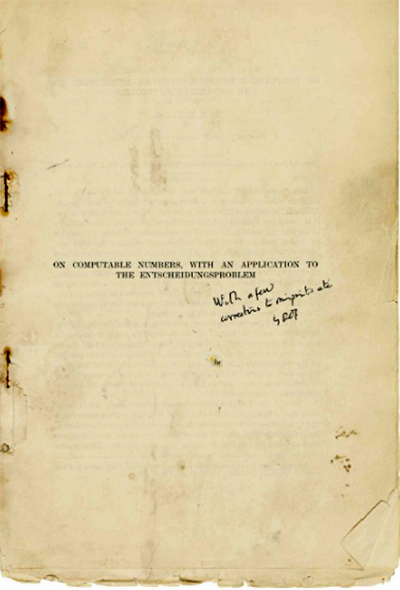Note: In 2021, I’m blogging once a week, typically on Saturdays. This is entry 23 of 52. I’m a day late, so we’ll pretend this entry came out on the 12th and is thus part of Week 23 (which by my count technically ended Saturday).
Note: I edited a bit of last week’s post, correcting something in the news blast about twitter censorship in Nigeria. Readers of last week’s post might consider looking at that fix.

This past week I’ve been catching up on my open records requests. At MuckRock, a service for filing such inquiries online, I have 169 requests in various phases: some completed, others ongoing, and still more with different statuses. Adding the requests I’ve lodged over the years without using MuckRock, for instance by emailing agencies directly, I estimate I’ve filed something like 200 open records requests in my life. That’s a lot to keep track of!
Open records requests encompass many moving parts and nitpicky details. For instance, on the federal level in the United States, there’s the Freedom Of Information Act legislation (initially enacted into law in 1966), which has resulted in any and all open records requests being called “FOIAs” as shorthand, even though if you’re lodging such an inquiry with, say, the Fort Worth Police Department, on the local level within the state of Texas, it’s not a FOIA but rather, in the lingo of those particular local cops, a public records request, or a public information request, or an open records request. But what to call these formal inquiries the public can make is just the first confusion individuals typically run into. Other complexities involve how to actually word the requests, which specific documents to seek, the multiple ways agencies will deny fulfillment of requests or outright lie and hide things, how to go to court over denials, and so on. Some people turn assisting others with open records requests into entire professional careers, which I suppose makes sense, since sorting through the deets involves deciphering time-consuming prolix tangles, not to mention authoritarian deceptions.
A specific trouble I’ve run into with my requests is undertaking the appeals process. If an agency denies a request, or claims they don’t have any responsive records for it (i.e., you requested x, but the agency says they don’t have any documents regarding x, and you don’t believe them), then if you want to pursue the matter, your next step, especially on the federal level in the United States, is to file a appeal — not a lawsuit, yet. Not all laws, not all jurisdictions allow for an appeals process. But if they do, it’s recommended you appeal the request for which the agency’s response has left you dissatisfied. An agency’s response you don’t like is called an “adverse determination.” For instance, if the Bureau of Prisons’ replies to your request constitute an adverse determination (and delaying fulfillment of a request for years, a frequent tactic of federal agencies, can constitute an adverse determination), then you’re supposed to appeal first to the Office of Information Policy, prior to suing anybody. Both the Office of Information Policy and the Bureau of Prisons are components of the federal Department of Justice, so your appeal to other foxes guarding the same general henhouse may be unlikely to succeed, but appealing makes your later lawsuit look better. It shows you “went up the chain of command,” to make an analogy to what the system usually asks whistleblowers to do. Once the appeals process fails, you then file a lawsuit, asking the judicial branch (basic separation-of-powers theory) to step in and overrule the executive branch or legislative branch agency you’re contending with. Because this process can take years and be expensive if lawyers are required, it prevents a lot of important information from being released and entering the news cycle. Plus, from the perspective of an individual member of the public (journalist or not) pursuing this process, it’s akin to fighting a battle. Even if it’s conducted on paper, it can be emotionally trying.
Executive function to the rescue
In the first half of the last decade, when I was more known for third parties publishing my journalism (as opposed to my self-publishing it), especially my writing for WhoWhatWhy, I filed most of the open records inquiries that exist on my 169-Muckrock-requests spreadsheet — but in my whole life, I’ve yet to appeal a single one. That was the obvious next step I should have taken with filings that resulted in adverse determinations (most of them). Now I’m confronting the confusing question of whether I can appeal them at all, since some laws/policies require appeals to be filed within, say, 90 days of the adverse determination. I’ve missed many of those deadlines, and I’m currently trying to figure out if I have to start completely over with brand new filings on the same subject matters. But then, can’t the agency just say the new filing is denied because it’s identical to the past filing that was denied? Yet would that still open up a new 90-day window for an appeal? In any case, I don’t want to end up waiting years and years again between my new request and the new adverse determination. I’ll ask the MuckRock experts for help on appealing.

I didn’t file a single appeal back then because I was going through mental health struggles that undercut my moxie to pursue such stressful battles and to organize my work as needed. I didn’t see the connections sufficiently in those days, because the grandiosity of mania made it difficult for me to perceive that I lacked skills and that I needed to formulate humble, mundane step-by-step plans to reach goals. “Executive function” is a concept in psychology and the mental health industry that refers to a suite of abilities such as managing time, formulating step-by-step plans, multitasking, streamlining procedures, and so on. If you’re cooking, and you realize that while one hand holds the saucepan under the flowing filtered water faucet, you can use the other hand to sprinkle herbs as the water slowly fills the saucepan, thus saving time by performing two tasks at once, you’re using executive function to optimize a routine task in your life (cooking). If you just unthinkingly follow a list of instructions someone else gives you, acting mechanically, without inventing little ways to improve the procedure, or questioning if it’s worth doing in the first place, you’re using little to no executive function. When people’s mental health deteriorates, they get stuck, the thought of venturing out beyond their comfort zones provokes overwhelming anxiety (sometimes they can’t even identify that they’re anxious), and they just doomscroll twitter all day (or engage in similar addictive behavior), losing the executive function to formulate battle plans to improve their situation. One of the nice things about my recent schoolteaching experiences has been that in teaching there’s such an onslaught of workload — lesson planning, grading papers, assessing where students are and adapting lesson plans accordingly, taking attendance, sitting through largely useless staff meetings, etc. — that if teachers don’t learn how to streamline things, they’re quickly in deep shit, so the schoolteaching experiences forced me to get more comfortable with applying executive function to, like, everything. I imagine new parents must have similar experiences, when the arrival of an infant decreases their sleep and free time, yet they still must get many things done (chores, employment tasks if no parental leave, etc.) just as they did before the child showed up. It can be tough when an adult is unemployed/underemployed, or trying to create structure for themselves in self-employment, to self-impose the same sort of ruthlessly efficient executive function that an outside job like schoolteaching can impose. It’s the difference between externally imposed instructions/structures, and internally imposing them, which requires a strong and healthy mind.
In my years in Seattle so far, with some exceptions, I’ve detoured from journalism to focus primarily on mental health (including by volunteering), a topic too broad to cover in this post (but see here, here, here, here, and here for starters); what’s relevant to open records requests is the idea of creating efficient processes for staying up to date with them. If you have 200 requests, then every single day, you, or MuckRock on your behalf, and/or the agencies are sending detail-crammed messages back and forth with status updates or notifications of adverse determinations or whatever. These notifications pile up in the requester’s email inbox (and the agencies’ inboxes, sometimes resulting in grumpy public information officers sending back sternly worded replies). The requester has to keep track of all this bureaucratic, checkbox-y data, or opportunities will be missed, deadlines will pass, and so on. It can feel overwhelming.
Now my mental health is much stronger, so it’s been time to return to the nagging stacks of open records requests, and this past week I spent a lot of time figuring out how to streamline my process with spreadsheets such that each weekend, or every other weekend, I can spend just 30 to 90 minutes updating my spreadsheets tracking how my requests are going and making/executing decisions about particular requests. For instance, this week I learned how to create logical styles in Libre Calc (a free software equivalent to Microsoft’s Excel) and how to use other non-beginner features. Also, MuckRock has a helpful option, I think one they introduced pretty recently, that allows users to export all their requests in .csv format to create a spreadsheet automagically. In sum, the efficiency prevents me from falling behind, prevents unattended requests from piling up to the point it takes a whole week to catch up. If someone is going in and out of psychiatric hospitals every few months, they don’t really have the time or energy to optimize procedures in their lives and then maintain those optimized procedures regularly. Or to change the example, imagine a person with low to zero income, who’s bouncing from one problematic partner’s apartment to another problematic partner’s apartment every few months, arguments and break-ups right and left, no stability they can rely on to support them while they organize/optimize/streamline their lives. And yet, having the opportunity to use executive function well is just damn required to advance toward huge goals successfully.
Executive function, meet Alan Turing and computer programming

This idea of executive function is not just, “Oh, somebody has a project, and they simply sketched out some ideas on a piece of paper to make their project more efficient, what’s the big deal?” — it’s actually a very powerful concept that’s core to many things, including computer science. For instance, the idea of leaving notes for yourself about where to start next time you resume a project is an important component of late mathematician Alan Turing’s 1936 paper On Computable Numbers, With An Application To The Entscheidungsproblem, in which Turing invents the very concept of computer software, and what’s now the job of programming (such as coding HTML), before computers even existed. Leaving notes for myself was something I was doing with the FOIA spreadsheets: when I was calling it quits for a day, I’d leave myself a note, such that the next morning, I could read the note saying something like “Start on row 121 of the main spreadsheet next time I work on this.” How leaving notes applies to Turing’s invention of computer software is too complicated to go into here in depth, but I can present a quotation from his paper for flavor and say that in short, Turing uses a note left as an analogy for a software code instruction, and iterations of such notes left as an analogy for a series of software code instructions linked together. Recall when reading the excerpt that in 1936, the word “computer” meant a human being who performed mathematical calculations at a desk with paper and pencil as their job, for example for the accounting department of a large business. Turing:
It is always possible for the computer to break off from his work, to go away and forget all about it, and later to come back and go on with it. If he does this he must leave a note of instructions (written in some standard form) explaining how the work is to be continued. […] We will suppose that the computer works in such a desultory manner that he never does more than one step at a sitting. The note of instructions must enable him to carry out one step and write the next note. Thus the state of progress of the computation at any stage is completely determined by the note of instructions […] the state of the system may be described […] we can construct a machine to write down the successive state formulae, and hence to compute

The software program is the set of instructions, what Turing called an “instruction table,” and he’d even argue that to some extent, you are the sets of instructions you generate for yourself. Or rather your mind is, not so much your social selves and physical body. Well, if you have good executive function, anyway, if you’re actually generating and streamlining procedures. If you have poor executive function, you’re reduced to obeying the instructions of others, mindlessly. Look at it this way. Another example of a helpful executive function action is, if you’re about to read a book, flip ahead to see where the next section break or chapter break is, and determine if you have enough time to read to that point, before plunging in. Sounds blindingly obvious, but might not be if you’ve grown up in a narcissistic country where to admit not having a skill, to admit not knowing something, to admit weakness, is too often putting your survival (employability, relationships, etc) in jeopardy. Further, psychiatry and identitarianism incorrectly teach people that inability is usually innate, part of some invisible, unprovable identity that must never be questioned, only honored, and that such gaps of knowledge usually aren’t fixable through learning. Then people get diagnosed as being intrinsically unable to perform executive function skills, and celebrate their diagnosis anniversaries and so on, explaining to each other without providing solid evidence — the symptom of distress, even strange distress as in psychosis, isn’t proof the problem’s cause is genetic — why they’re supposedly banned from improving their executive function. Like maybe because some mental health provider said so. When instead, individuals can support one another in improving their executive function abilities and ideas.
Executive function/programming versus the spies
A world sans executive function leaves individuals adrift, easy targets for what’s called soft power/active measures/seductive coercion/etc: TLAs (Three Letter Agencies) flooding our lives with sockpuppet propaganda to such a degree that the spy agencies are writing the highest level instruction tables influencing what humanity does. See for instance the testimony of defectors from spy agencies, like KGB defector Yuri Bezmenov in the early eighties saying 85% of that agency’s emphasis was on the “slow process” of “psychological warfare”; or, see the obsession with which the US State Department surveils literary figures, revealed in the 2010-2011 massive leak of diplomatic cables; or, read about the CIA funding creative writing programs. A person shopping for a bookcase might evaluate their options at a store with a fair amount of impartiality, perhaps using a tape measure to ascertain the geometric facts. But people do not typically evaluate their options regarding systems of governance similarly, because beyond the bare minimum, the various choices aren’t much discussed in formal education or popular culture. That’s a result of the spy agencies programming what individuals are interested in, for instance, by ensuring celebrities dominate the front pages of newspapers, tabloids, televisions, social media apps, and so on. The executive function ability to change and refine how you spend your time can protect you from getting swept up in default assumptions (e.g., such as the default assumption that focusing on what entertainers have to say on podcasts is the method to be selected for evaluating current events and ideas).
But improving executive function skills enables people to steer their lives better even in a propagandized environment. It’s so helpful to create and optimize little software-like programs to direct yourself, or recipes for your own life (to put a folksy domestic spin on it), about how to manage whatever tasks, such as requesting FOIAs, so that staying on top of everything becomes realistic, practical. Time and chance happenth to us all, regardless of how good our to-do lists are, but impressive executive function betters our odds of achieving at least some of our aims, even across generations. This is attested in many quotations; I’ll present three below, the last bringing this post back to Philip K. Dick.
Your mind is programmable — if you’re not programming your mind, someone else will program it for you.
Hacktivist Jeremy Hammond
Humans are the most programmable systems on earth. We were all programmed and we can all be reprogrammed. Our programming is our governance.
Philosopher Heather Marsh
today we live in a society in which spurious realities are manufactured by the media, by governments, by big corporations, by religious groups, political groups — and the electronic hardware exists by which to deliver these pseudo-worlds right into the heads of the reader, the viewer, the listener […] The basic tool for the manipulation of reality is the manipulation of words. If you can control the meaning of words, you can control the people who must use the words. George Orwell made this clear in his novel 1984. But another way to control the minds of people is to control their perceptions. If you can get them to see the world as you do, they will think as you do. […] The power of spurious realities battering at us today — these deliberately manufactured fakes never penetrate to the heart of true human beings.
Science fiction writer Philip K. Dick
I’ll say more about FOIAs in future posts. But it’s worth quickly noting a limitation to them: unlike government agencies, private firms and corporations can simply ignore records requests, though documents from within them sometimes come out thanks to hacktivists, or whistleblowers, or other leaks, or lawsuits. Open records legislation does not apply to the “private property” of files within business firms. Since corporations are typically more fundamentally responsible for the state of the world than governments (to put it in a bit of an oversimplified manner), the media’s focus on FOIAs can simply distract us from corporate crimes. The astute reader might notice an apparent contradiction: above, I say spy TLAs write the highest level instruction tables manipulating humanity, but in this paragraph I say corporations are more responsible for what humanity does and doesn’t do. The resolution to the seeming contradiction is that most of the spy TLAs’ budget nowadays goes to private contractors, i.e., private spies. So to whatever extent the CIA is currently funding creative writing programs, the picture is more accurately painted like this: private spies contracting with the CIA put together everything required for the funding/creation of creative writing programs. The spies shifted from working directly as government agency staff (which they still do to a degree) to working in private businesses contracting with the TLAs, to escape accountability (including open records requests). Still, many times, government documents obtained through open records requests can be important puzzle pieces for understanding the world around us.

News blasts
I wanted to include Belarus and Ethiopia, but ran out of time. I’ll include them in my next post.
Nigeria. In October 2020, mass protests occurred throughout Nigeria’s major cities following revelations of abuses by the Nigerian police’s notorious SARS unit, the Special Anti-Robbery Squad. These decentralized protests, which spread across Nigerian communities worldwide, were called the #EndSARS movement, at first opposing the brutality of the SARS police, and then expanding to include demands for good, accountable governance in general. It’s important to note that authorities worldwide, including special police units, cooperate across borders, so to match that strength, it’s necessary for activists to cooperate across borders as well, which activists increasingly do, not staying mentally siloed within the invisible borders of the country they were born in. See this interesting Al Jazeera article from June 2020 on that topic. Back to Nigeria. The energy and organizations spawned by the #EndSARS movement did not appreciate when, earlier this month — as discussed in my previous post’s news blasts — the Nigerian president Muhammadu Buhari (a general who ruled the country in the ’80s via a military coup) started trying to shut down Twitter in Nigeria once the social media company deleted one of his tweets for terms of service violation, since his tweet threatened violence against pro-Biafra separatists. Sparked by Buhari’s twitter censorship, Nigerians planned a massive protest for June 12. In Nigeria, June 12 is Democracy Day, a public holiday marking the event in 1999 when Nigeria transitioned from military rule to an elected civilian government. The protesters’ fire has been heated by many injustices, not just the twitter censorship. Among the injustices are extreme poverty and lack of public education, and horrifyingly widespread femicide and rape of women, all hardships worsened by COVID-19. Also, the Nigerian government has failed thousands of institutionalized individuals diagnosed with mental illness and confined in the country’s state hospitals, rehabilitation centers, traditional healing centers, and both Christian and Islamic faith-based facilities. These individuals can find themselves locked up in chains or otherwise abused. There’s a nonprofit called MANI (Mentally Aware Nigeria Initiative) that is led by Nigerian users of mental health services (as opposed to led by mental health providers like therapists and psychiatrists); MANI has an interesting website, and they seem at my cursory glance mostly focused on the various support services they offer, but they did tweet a few times regarding the protests (some of their tweets about Buhari’s twitter ban embedded below). I’d like to learn more about the mental health situation in Nigeria, if there’s a psychiatric survivor movement there, and so on. Back to the June 12 protests. Activists in Nigeria criticized the large numbers of kidnappings in the country by terrorists seeking ransom, the many deaths in cult clashes and communal crises, the civil rights violations, the displacement of more than 10 million Nigerians, the high unemployment rate and the rising prices of essentials, the Internet shutdowns, and more. The Nigerian protestors have been issuing three demands to the Nigerian government: 1. End the killings and insecurity; 2. End the social media shutdown immediately; 3. Convene an emergency inter-regional dialogue committee for all regions in Nigeria within a month. During the June 12 protests, cops in the Nigerian cities of Lagos and Abuja fired teargas, detained protestors, and smashed cellphones, which of course activists use to spread information online. On short notice, I was unable to find much of anything about any Nigeria-related protests in Seattle or Texas. The situation in Nigeria will likely continue to develop. For more, read this YAC.news article, the source for much of this news blast item, or watch the YAC.news 7.5-minute video on the subject embedded below (the article is the script for the video’s voice-over), and/or watch the 3-minute Al Jazeera video about the protests embedded below.

Uplifting items in Dallas and Bangladesh/Australia. First, the Dallas chapter of Food Not Bombs has been sharing food in the southern part of that city at #CampRhonda, a community of individuals denied housing by their wider (un)society. Camp Rhonda is named in memory of Rhonda Fenwick, who lived there for a month before dying of organ failure, according to an interesting February 2021 article by The Dallas Morning News. In mutual aid, Food Not Bombs Dallas shared meals at Camp Rhonda today despite the 100° Fahrenheit temperature, and the activists have been working on a community garden at the camp, too. The garden and today’s sharing are pictured below. For my readers in North Texas (where I’m originally from), contact information to volunteer with or donate to the chapter might be: 972-955-0849 or dallasfnb@riseup.net or frankenstein@riseup.net. That’s according to the Google Map linked by the foodnotbombs.net website. I can’t link to that portion of the Google Map directly, so I typed the contact information directly into this paragraph. I don’t know if the contact info is up to date; if it isn’t, try contacting the chapter via Twitter: @FNBDallas. And c’mon Fort Worth, get your own chapter going! Now for Bangladesh/Australia. In the past month, there have been a handful of articles about 25-year-old Rohingya Noor Kabir, who was born inside a refugee camp due to the genocide against the Rohingya. Noor Kabir grew up on strict food rations, but migrated to Australia alone at age 16, where he recently won a Brisbane bodybuilding competition called the ICN Classic. He’s currently studying to be a nutritionist, and he aims to inspire refugees, even those in bad situations as he was, to exercise and eat as healthy as possible. This article about him is really good, this one too, and he’s pictured below. Upon arrival in Australia, he spent two years in community detention (I think something Australia has been imposing on immigrants/refugees generally, not just Noor Kabir), but then was given a bridging visa and worked as a forklift driver prior to meeting a mentor who encouraged him to become a personal trainer. The bodybuilding developed from there. In the article, Noor Kabir says, “When I lived in the camps, I struggled with food — not enough food, not enough carbs, not enough drink” and continues “We lived […] seven people in a room that’d be […] 5 square metres [roughly 53 square feet]” and concludes “I lived like this for 15 years – it wasn’t a good life, so I wanted a new beginning.” Noor Kabir is believed to be the first Rohingya man to win a bodybuilding competition.






This blog post, FOIAs and the rest of life, now with executive function, by Douglas Lucas, is licensed under a Creative Commons Attribution-NonCommercial-ShareAlike 4.0 International License (human-readable summary of license). The license is based on a work at this URL: https://douglaslucas.com/blog/2021/06/13/foias-executive-function/ You can view the full license (the legal code aka the legalese) here. For learning more about Creative Commons, I suggest reading this article and the Creative Commons Frequently Asked Questions. Seeking permissions beyond the scope of this license, or want to correspond with me about this post one on one? Email me: dal@riseup.net.
 Twitter:
Twitter:
1 comment so far ↓
Wow, nice post! As far as that Suicidal Tendencies pic, do you ever have one of those days where you feel like it’s your brain they’re playing a loud rock concert on top of? Anyway, I’ve just written some responses to the parts that really stood out to me. I hope they’re relevant!
“…the grandiosity of mania made it difficult for me to perceive that I lacked skills…”
I read in an Oliver Sachs book once about how people can go blind without realizing they’re blind. Like, they’re not trying to fake their way through a driver’s license exam or something—they literally convince themselves that they can still see though they’re neurologically blind and can’t perform on the “how-many-fingers-am-I-holding-up?” test better than chance. There’s even a fancy Greek name for this predicament, but I can’t recall it. Just noteworthy how challenging it can be for the mind to perceive itself, despite its stalwart conviction that it sees itself perfectly!
“…It can be tough when an adult is unemployed/underemployed, or trying to create structure for themselves in self-employment, to self-impose the same sort of ruthlessly efficient executive function that an outside job like schoolteaching can impose…”
Yeah, the sad thing is, sometimes I hear about teachers who are dedicated to their jobs, but wind up spending like 15 hours a day slogging through them because of all the forms to fill in and boxes to check that the school bureaucracy requires. On a related topic, nowadays I’m seeing a lot of news articles about post-COVID school-administrator panic caused by lack of job applications from prospective teachers. Well, guys, maybe that’s got something to do with the low pay, low social status, and high-volume of paperwork the job entails. Some teachers have spent the past year laid off from their jobs, they’ve managed somehow to make ends meet nonetheless, and so now they’re apparently none too keen to return! Can we really blame them? So on the one hand, of course, three cheers for the executive function and how it allows you to get more done with less resources over time via repetition, reflection, and practice. But on the other hand, policy people could make teaching a much more enticing field of employment simply by paring away as many of its bureaucratic chores as possible!
“…if you’ve grown up in a narcissistic country where to admit not having a skill, to admit not knowing something, to admit weakness, is too often putting your survival (employability, relationships, etc.) in jeopardy…”
It’s funny because “narcissistic” is the in-word nowadays. When I was little, people just used to say “egotistic.” And when my parents were little, people probably just said “selfish” or something. Anyway, this is my first time hearing someone describe the US as a “narcissistic country,” but it’s not inaccurate! I certainly agree how in the US there’s an unconscious culture of individualism (which basically means the right to act like a complete asshole if you make enough money), and I think what you’re talking about is how people risk their social standing whenever they openly question, through either word or action, the deeply held values underpinning that culture. But I think there is a positive and even pretty ironic flipside here, which is this: if people have the self-awareness that they simply aren’t always skilled at things or don’t know everything or are weak in some areas, and if they feel comfortable admitting those things at least to themselves, then they can immediately take steps to redress those deficiencies if they like, without having to change the culture at large first. And in fact, I think that learning new skills and practices is quite enjoyable in and of itself, and that people can actually learn new skills surprisingly quickly and naturally, especially when they aren’t constantly having to prove the value of their efforts to society at large through the standardized and mechanical sorting regime typically referred to as “assessment.”
Anyway, if you’ve made it this far, thanks for reading!
Chilly (who against unimaginable odds managed to produce this very reply after countless millennia of randomly pressing fiegnu48rtnjfige… I mean keys.)
Leave a Comment